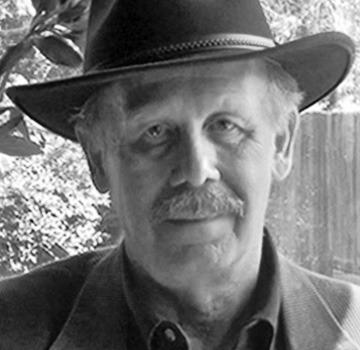| Column
William F. Buckley’s dad, a sharp-tongued Texan who always spoke his mind, reviled Mexican revolutionaries as south-ofthe- border Bolsheviks in testimony before the Senate Foreign Relations Committee on Dec. 13, 1919.
The millionaire oilman and father of the conservative intellectual with the same name was born in 1881 at Washington- on-the-Brazos to Irish immigrants, who came to Texas by way of Canada. He grew up in San Diego, where his father combined sheep raising with a career in law enforcement that included several terms as Duval County sheriff.
Will Buckley graduated from the University of Texas in 1904, the year his father died, and went onto law school. Figuring his fluency in Spanish would give him a lucrative advantage, the ambitious attorney opened an office in Mexico City.
Buckley was not unduly alarmed in 1911 by the abrupt end of the four-decade dictatorship of Porfirio Diaz. He presumed Francisco Madero, the tyrant’s reform-minded successor, was strictly a transitional figure whose days were numbered.
The swift overthrow of Madero by Diaz henchman Victoriano Huerta confirmed Buckley’s cynical assessment. For American and British investors, who controlled 98 percent of Mexican petroleum production, the military coup meant a return to business as usual.
But Huerta could not put the revolutionary genie back in the bottle. By 1914 he was fending off challenges from fellow generals Venustiano Carranza and Alvaro Obregon as well as peasant insurgents Pancho Villa and Emiliano Zapata.
Convinced the beleaguered strongman was the last hope for free enterprise and the Catholic Church, Buckley jumped into the middle of the lifeand- death struggle. His partisan participation put him on a collision course with the Wilson administration, which sent the navy to Veracruz to enforce an arms embargo against the embattled government. Buckley not only refused an urgent request to assist the intervention but attended U.S.-sponsored talks as Huerta’s personal advisor.
After Carranza and Obregon came to power, the hard-headed Texan joined the counterrevolutionary underground. While the new rulers were nothing more than lukewarm nationalists paying lip service to democratic ideals, Buckley believed they were the New World agents of the Bolsheviks, who had just toppled the Russian czar.
That was the gist of his diatribe at a senate hearing in December 1919. But his indictment of the Mexican Revolution as part and parcel of the international Communist conspiracy reeked of paranoia.
Buckley’s melodramatic meddling in Mexican affairs was tolerated until November 1921. After his involvement in a second anti-government plot in as many years, he was kicked out of the country and his property confiscated.
While Buckley bitterly protested the punishment, he got off easy by Mexican standards. Had he not been a wealthy and influential American, he would have faced a firing squad.
The banished businessman went straight home, packed up his family and moved to New England. Though a frequent visitor, he never again lived in Texas, which explains why his famous namesake was born a Connecticut Yankee.
Buckley’s Mexican experience forever shaped his view of the world. Behind every popular uprising he saw the sinister hand of Communism secretly pulling the strings. He argued for a hands-off policy toward Nazi Germany during the Second World War in the misguided hope that Hitler would crush the Soviet Union.
Despite soaring unemployment and widespread suffering caused by the Depression, Buckley maintained his fervent faith in free-market capitalism. While most conservative critics eventually credited Franklin Roosevelt with saving the country, the true believer never wavered in his condemnation of the New Deal.
Haunted by the memory of an older brother, a junior who had died in a barroom brawl, Buckley resisted his wife’s efforts to name a boy after him. But he finally relented in 1925 and allowed her to christen their sixth child and third son William F. Buckley, Jr.
Billy was a precocious chip off the old block, who absorbed his father’s politics like a dry sponge. At the tender age of seven, he wrote a letter to the King of England insisting upon payment in full of the British war debt. Several years later during the debate over the European war, he dubbed his first sailboat “Sweet Isolation.”
At times, however, Junior was too extreme even for zealous Senior. In a note to his 15-year-old clone, Will Buckley encouraged him “to be more moderate in the expression of your views and try to express them in a way that would give as little offense as possible to your friends.” Whether the godfather of the modern conservative movement has heeded dear old dad’s advice is, of course, a matter of opinion.
A Christmas special! “Depression Desperadoes,”“ Murder Most Texan,” “Texas Boomtowns,” “Unforgettable Texans” and “Entertainers” all just $19.95 each. Mail your check to Bartee Haile, P.O. Box 130011, Spring, TX 77393.


